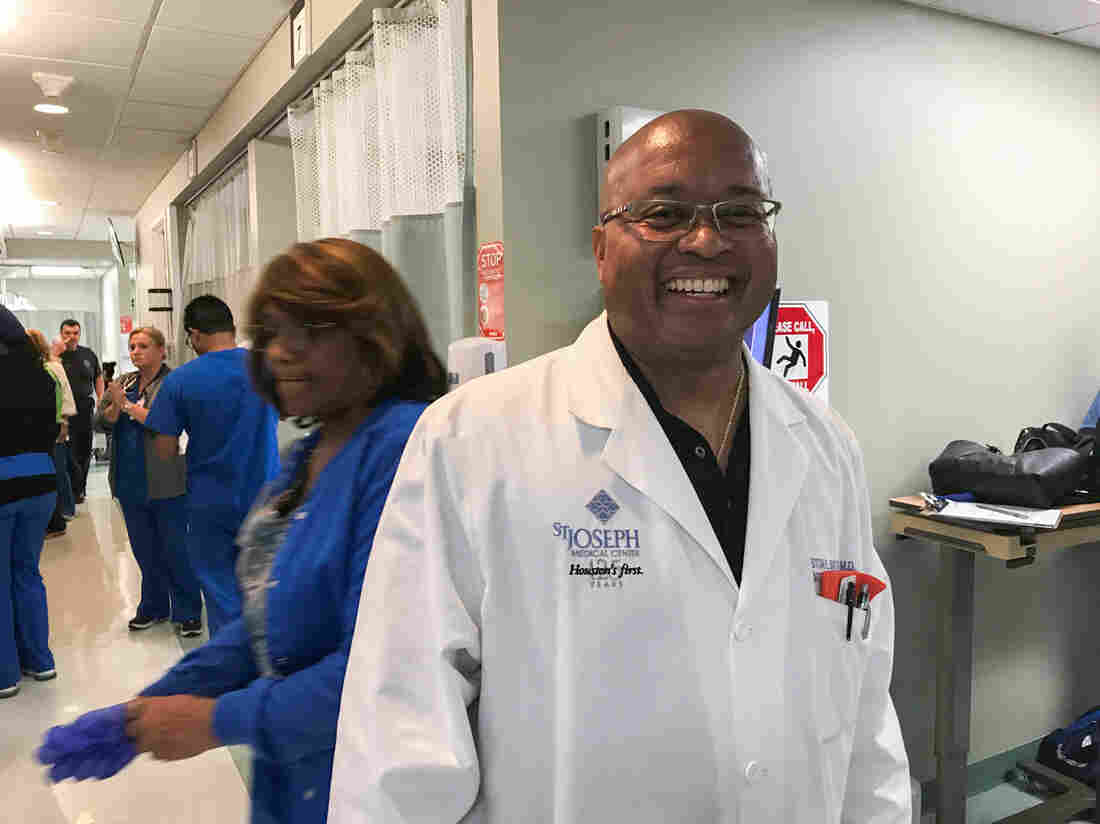The Reason Behind The Recent Spike In Gas Prices
Motorists are finding that the average price of a gallon of gasoline is 20 cents more than it was a month ago — the highest it’s been in two years. The reasons have a lot to do with Hurricane Harvey.
MICHEL MARTIN, HOST:
We’ll be checking in throughout the hour with people who’ve been affected by this storm in all kinds of ways. And even if you don’t live in the Southeast or have family there, you might be one of them if you plan to hit the road this Labor Day weekend. Motorists are finding that the average price of a gallon of gasoline is 20 cents higher than it was a month ago. It’s the highest it’s been in two years, and the reasons have a lot to do with Hurricane Harvey. NPR’s Jim Zarroli is here to explain this. Jim, thanks so much.
JIM ZARROLI, BYLINE: Hi.
MARTIN: So you were telling us that Harvey is affecting the energy markets profoundly. Why is that?
ZARROLI: Well, the problem is the refineries. I mean, there are a lot of them along the coast of Texas and Louisiana. The biggest refining facility is in Port Arthur, Texas. And it’s not so much that there was damage to these refineries, but when the storm was approaching, some of them had to be shut down. And just because of the way they are technologically – they’re complex facilities – they can’t be sort of restarted on a dime. So we’ve lost, you know, nearly 17 percent of total U.S. refining capacity.
And in the meantime, you’re seeing long lines at gas stations. And some gas stations are even running out of gas altogether. Yesterday, the governor of Texas, Greg Abbott, assured his state that it still has plenty of gasoline and it’s not going to run out. But there are shortages right now.
MARTIN: Now, the refineries are in the Gulf of Mexico. How does that affect the rest of the country?
ZARROLI: The infrastructure in the Gulf serves the rest of the country. I mean, the oil in places like Port Arthur is refined into gasoline that’s used in the Midwest and in the Northeast. There’s also been a problem with pipelines. Some of them have had to be shut down, like the Colonial Pipeline goes from Houston to North Carolina. Part of that had to be shut down. And that just means less gasoline in places like Chicago and New York.
Then also you had, you know, you’ve had less oil being imported because shipping has been interrupted. And when you have this major disruption, oil companies shift production around a lot. That’s another thing. They want to make sure it goes where it’s most needed. So this is really felt all over the place.
MARTIN: So is the government taking any steps to address these supply problems that we’re seeing? Is there anything the government can do?
ZARROLI: The Department of Energy has taken some temporary steps. It’s waived some of the clean air requirements on gasoline. It says that should help get supplies moving faster. It’s also released some oil from the strategic petroleum reserves into a big refinery in Lake Charles, La., that was having some trouble getting the crude it needed. Of course, the company that owns it is going to have to, you know, make up for that later on by returning some oil to the reserves.
MARTIN: So how long before supplies return to normal levels?
ZARROLI: You know, it’s going to be a few weeks, maybe the end of the month. The companies are still assessing how much damage, if any, their facilities have have sustained. We’re starting to see some recovery already. The port of Corpus Christi, you know, has reopened its shipping channel. That means the refineries there can start to get back on line as early as this weekend. But in the meantime, you know, we could see prices going up for a while. We don’t know how much, but they should go up – continue to go up.
MARTIN: That’s NPR’s Jim Zarroli. Jim, thank you.
ZARROLI: You’re welcome.
(SOUNDBITE OF STEVIE RAY VAUGHAN AND DOUBLE TROUBLE’S “TEXAS FLOOD”)
Copyright © 2017 NPR. All rights reserved. Visit our website terms of use and permissions pages at www.npr.org for further information.
NPR transcripts are created on a rush deadline by Verb8tm, Inc., an NPR contractor, and produced using a proprietary transcription process developed with NPR. This text may not be in its final form and may be updated or revised in the future. Accuracy and availability may vary. The authoritative record of NPR’s programming is the audio record.





